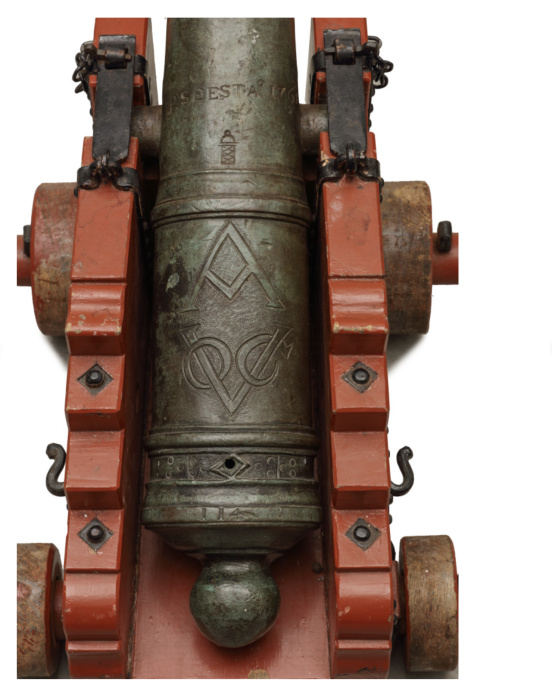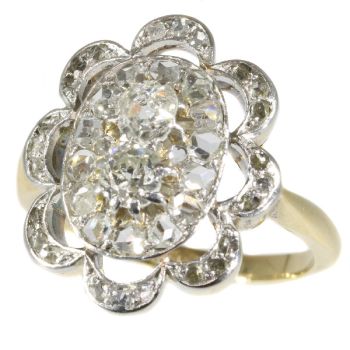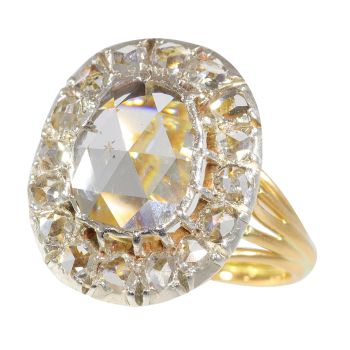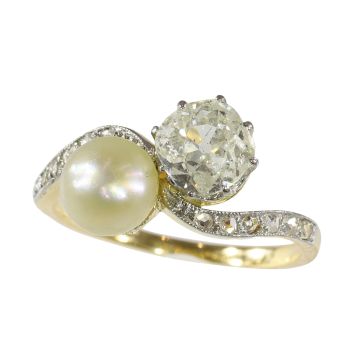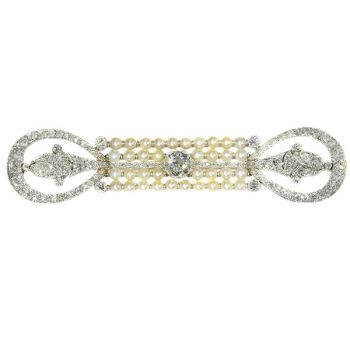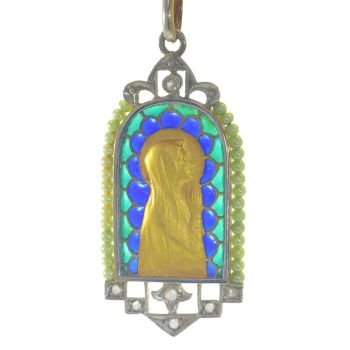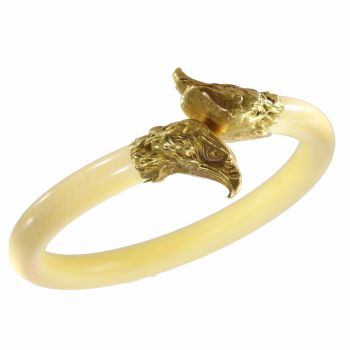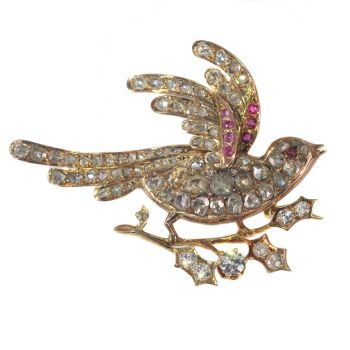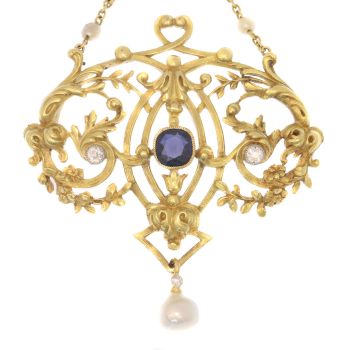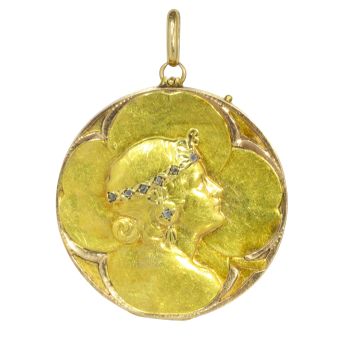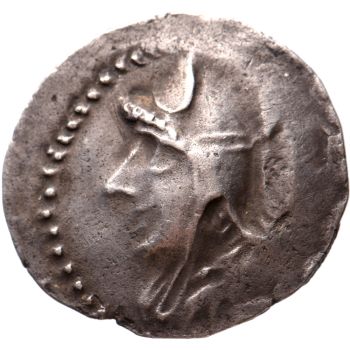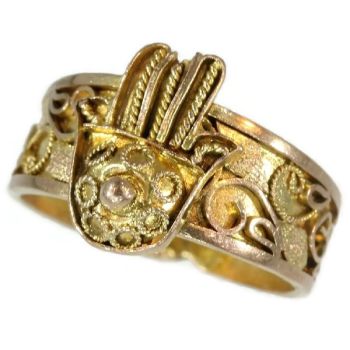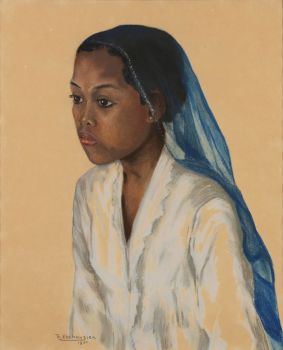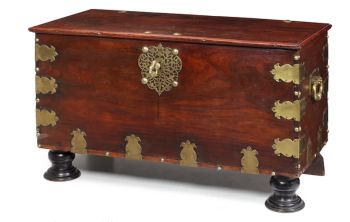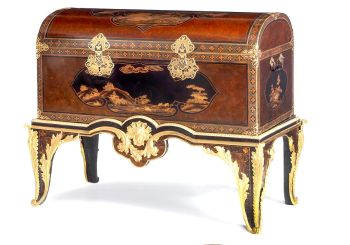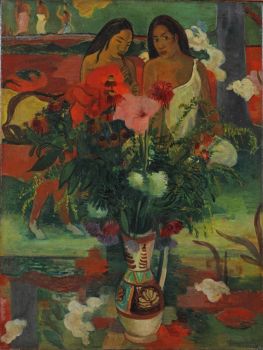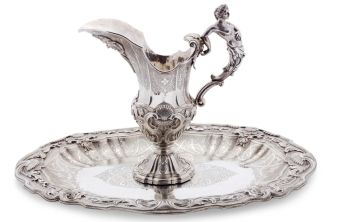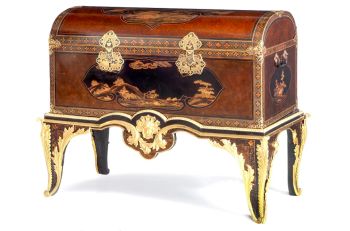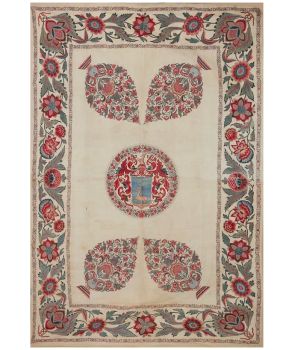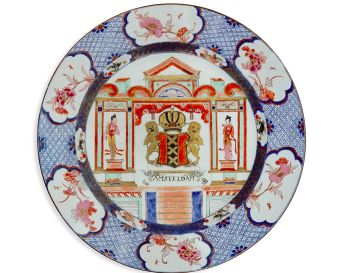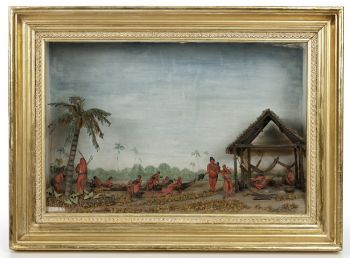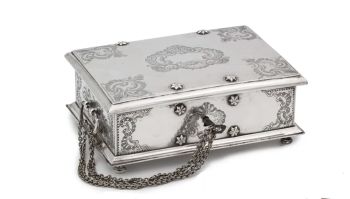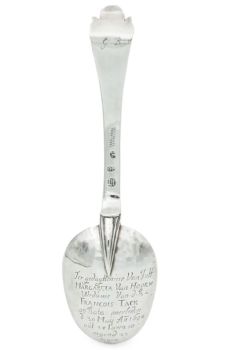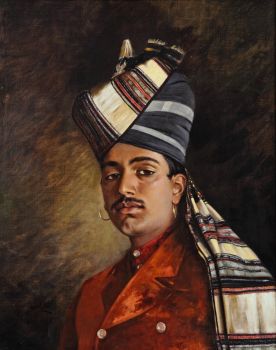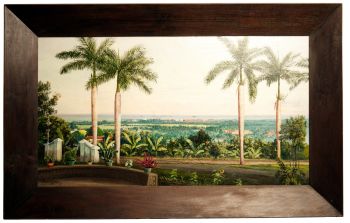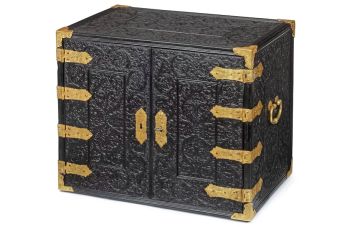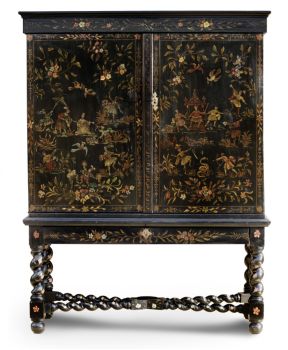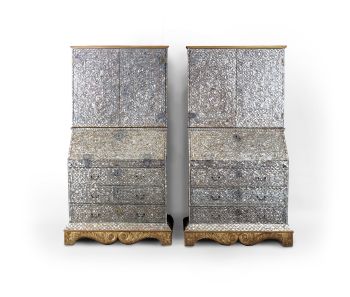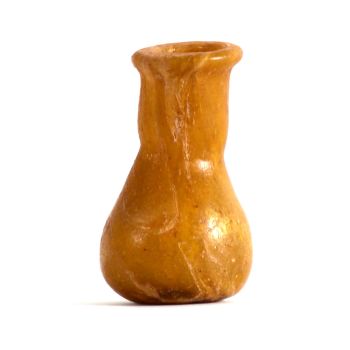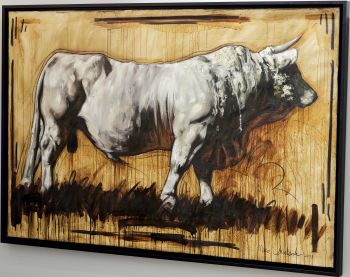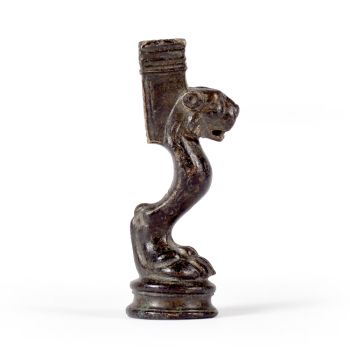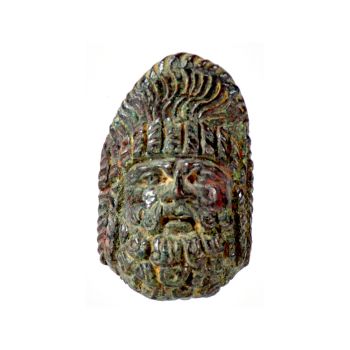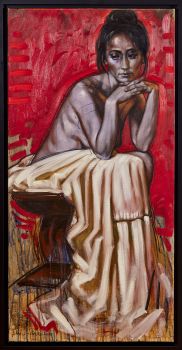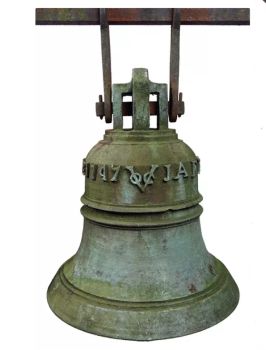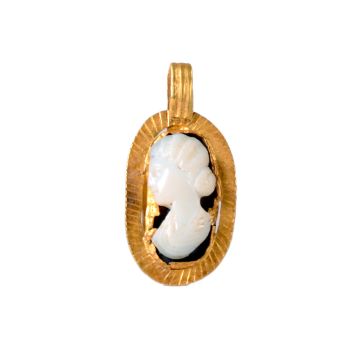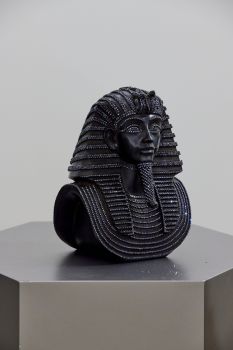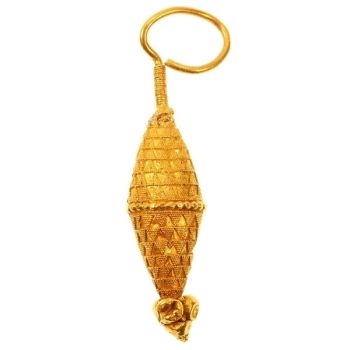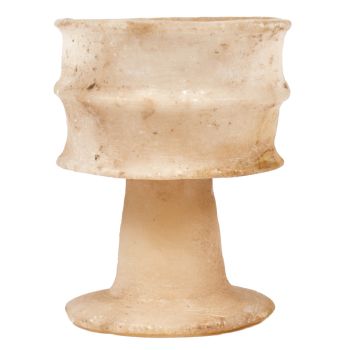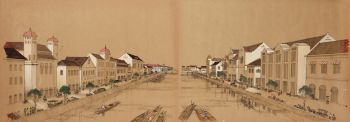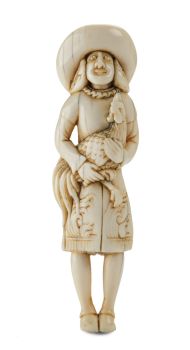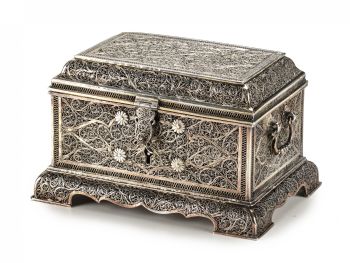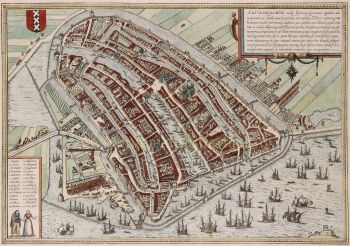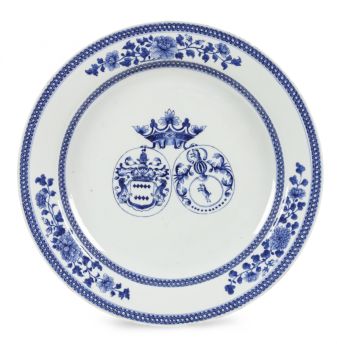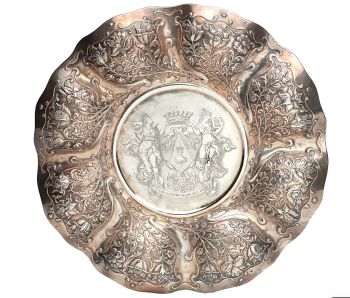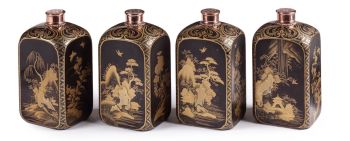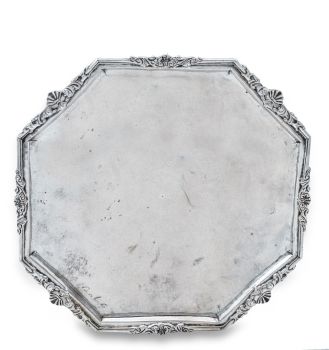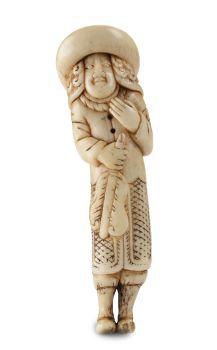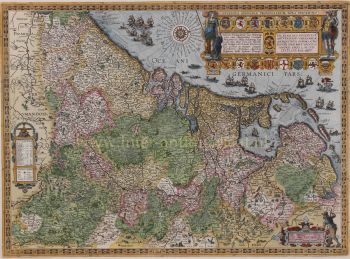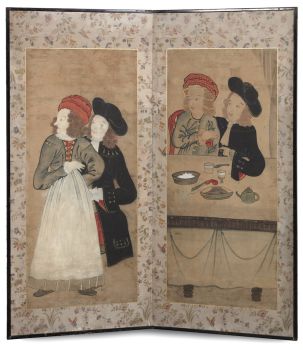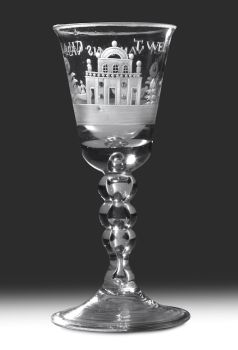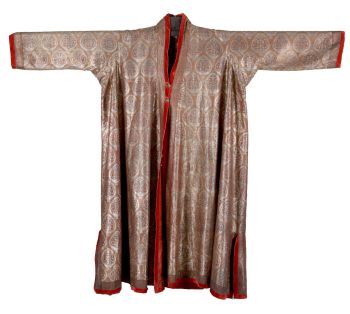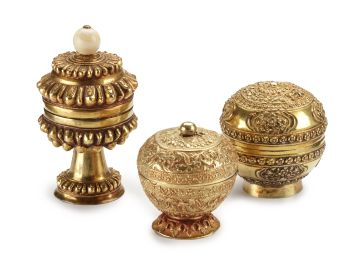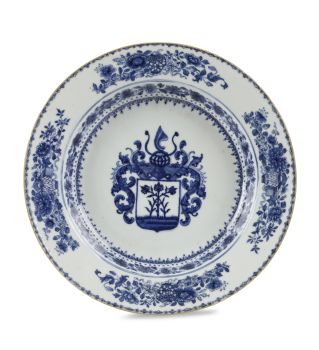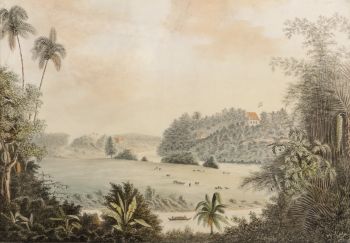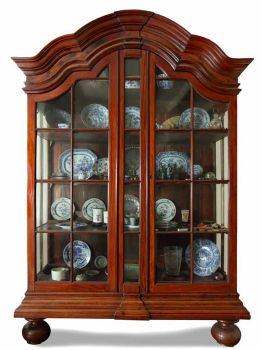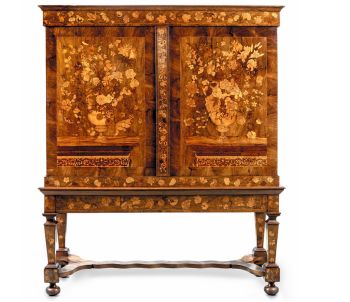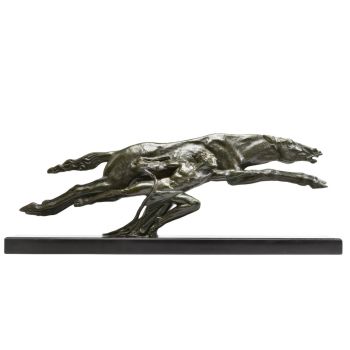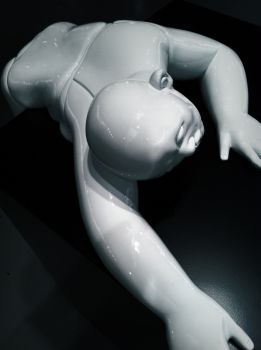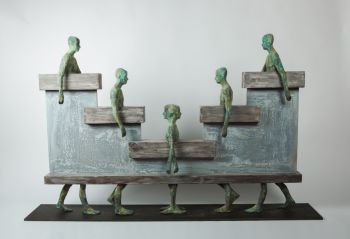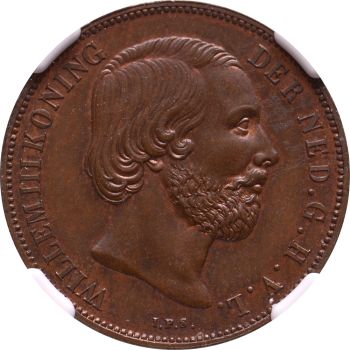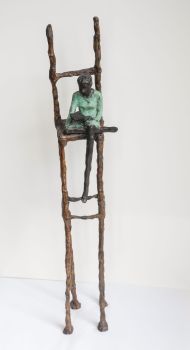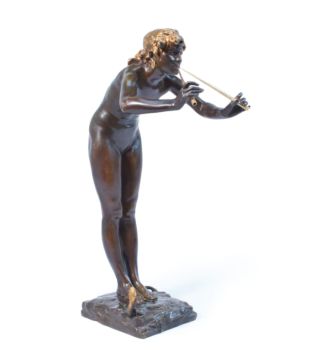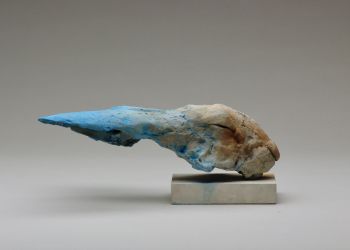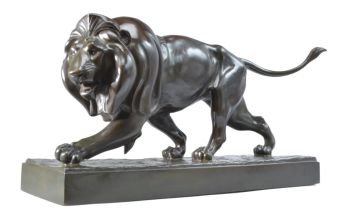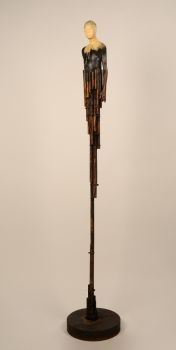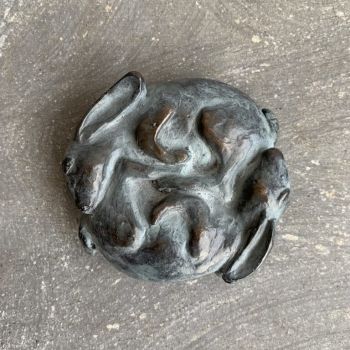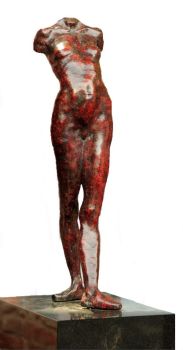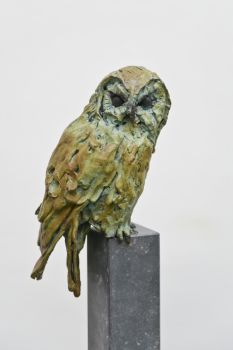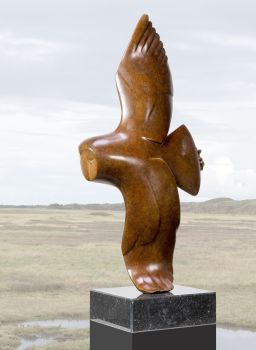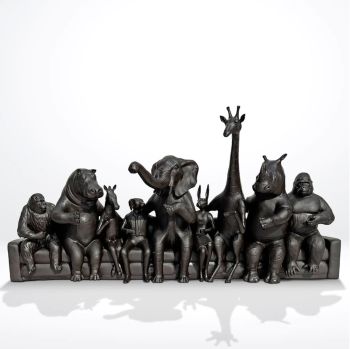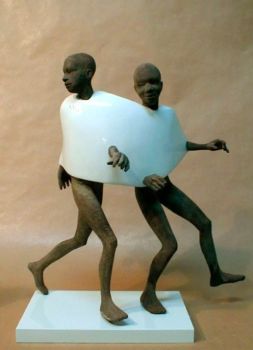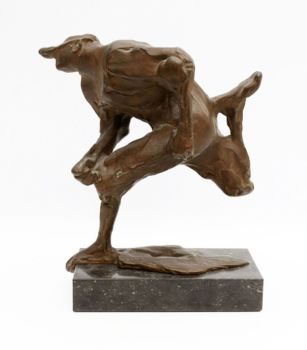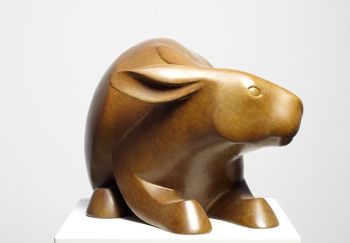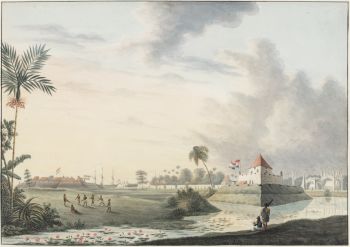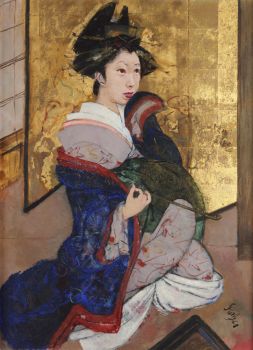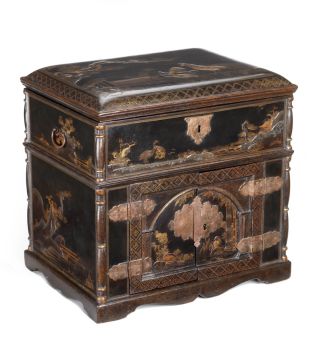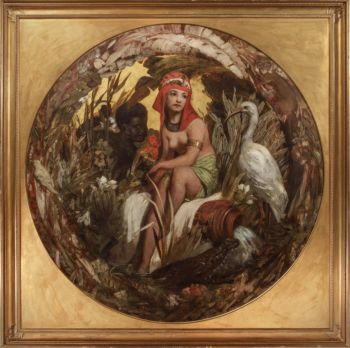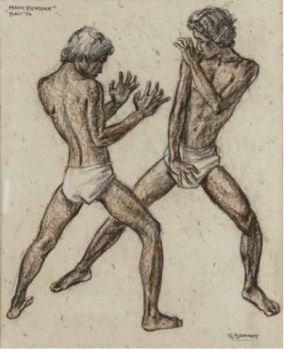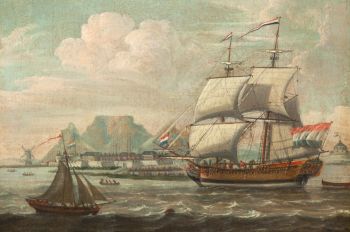A rare Dutch East India Company ‘VOC’ cannon 1764
Unknown artist
WoodBronzeMetal
80 cm
Currently unavailable via Gallerease
Zebregs & Röell - Fine Art - Antiques
- About the artwork
Amsterdam, signed and by Pieter Seest, dated 1764 and with Amsterdam town mark
The bronze 1/2-pounder was made for 17-caliber length, and has a later wood gun carriage.
The cannon bears a large VOC monogram and the A for the East India Company Chamber of Amsterdam.
L. 80 cm, grams
Provenance:
Collection H.L.Visser, the Netherlands
Literature:
R. Roth, The Visser Collection - Arms of the Netherlands, in the collection of H.L. Visser, vol II, Zwolle, 1996, cat. no. C37, pp. 138-139 (ill.)
Before the start of the Eighty Years War in 1568, ordinance manufacture was in the Southern Netherlands, particularly in Mechelen, and the Northern Provinces only had a tradition of church bell casting, not of gun founding. However, thanks to migration out of the Southern Netherlands due to Spanish religious intolerance, a large section of the population that had embraced the Protestant faith, including many wealthy entrepreneurs and skilled craftsmen, fled to the North. Cut off from the traditional supply of ordinance, the North, with the help of immigrants from the South, developed their own ordinance.
Already by the early 17th century, Dutch arms and ammunition were major export products to the rest of Europe and abroad. This was fuelled by the expansion of maritime trade through the East and West India Companies, who needed to arm their vast shipping fleets. A religious refugee from the bishopric of Liège, Louis de Geer, together with Walloon iron workers, initiated copper and iron mining and established the Finspång gun foundry in Sweden. Together with Elias Trip, his brother-in-law, a prominent Dutch merchant of guns and financier of the foundry in Sweden, he made Holland the military arsenal of the world, exporting military equipment to most countries in Europe and further afield.
Most guns were made of iron because they were cheaper. However, since iron affects the compasses aboard ships, bronze guns were placed near the helm. - About the artist
It might happen that an artist or maker is unknown.
Some works are not to be determined by whom it is made or it is made by (a group of) craftsmen. Examples are statues from the Ancient Time, furniture, mirroirs, or signatures that are not clear or readible but as well some works are not signed at all.
As well you can find the following description:
•“Attributed to ….” In their opinion probably a work by the artist, at least in part
•“Studio of ….” or “Workshop of” In their opinion a work executed in the studio or workshop of the artist, possibly under his supervision
•“Circle of ….” In their opinion a work of the period of the artist showing his influence, closely associated with the artist but not necessarily his pupil
•“Style of ….” or “Follower of ….” In their opinion a work executed in the artist’s style but not necessarily by a pupil; may be contemporary or nearly contemporary
•“Manner of ….” In their opinion a work in the style of the artist but of a later date
•“After ….” In their opinion a copy (of any date) of a work of the artist
•“Signed…”, “Dated….” or “Inscribed” In their opinion the work has been signed/dated/inscribed by the artist. The addition of a question mark indicates an element of doubt
•"With signature ….”, “With date ….”, “With inscription….” or “Bears signature/date/inscription” in their opinion the signature/ date/ inscription has been added by someone other than the artist
Are you interested in buying this artwork?
Artwork details
Related artworks
- 1 - 4 / 12
Artista Desconhecido
Japanese transition-style lacquer coffer 1640 - 1650
Preço em pedidoZebregs & Röell - Fine Art - Antiques
1 - 4 / 24Artista Desconhecido
The bell of the VOC fortress in Jaffna, Sri Lanka1747
Preço em pedidoZebregs & Röell - Fine Art - Antiques
 Com curadoria de
Com curadoria deDanny Bree
1 - 4 / 13Artista Desconhecido
Japanese transition-style lacquer coffer 1640 - 1650
Preço em pedidoZebregs & Röell - Fine Art - Antiques
Cornelis Anthonisz Theunissen
MUITO RARO PRIMEIRO MAPA IMPRESSO DE AMESTERDÃO, UMA CIDADE EM ASCENSÃO1544
€ 175.000Inter-Antiquariaat Mefferdt & De Jonge
 Com curadoria de
Com curadoria deDanny Bree
Artista Desconhecido
The bell of the VOC fortress in Jaffna, Sri Lanka1747
Preço em pedidoZebregs & Röell - Fine Art - Antiques
 Com curadoria de
Com curadoria deDanny Bree
 Com curadoria de
Com curadoria deDanny Bree
1 - 4 / 24Joris August Verdonkschot
Degas Revisited - In Stock2000 - 2020
Preço em pedidoMorren Galleries Utrecht
1 - 4 / 24- 1 - 4 / 12


